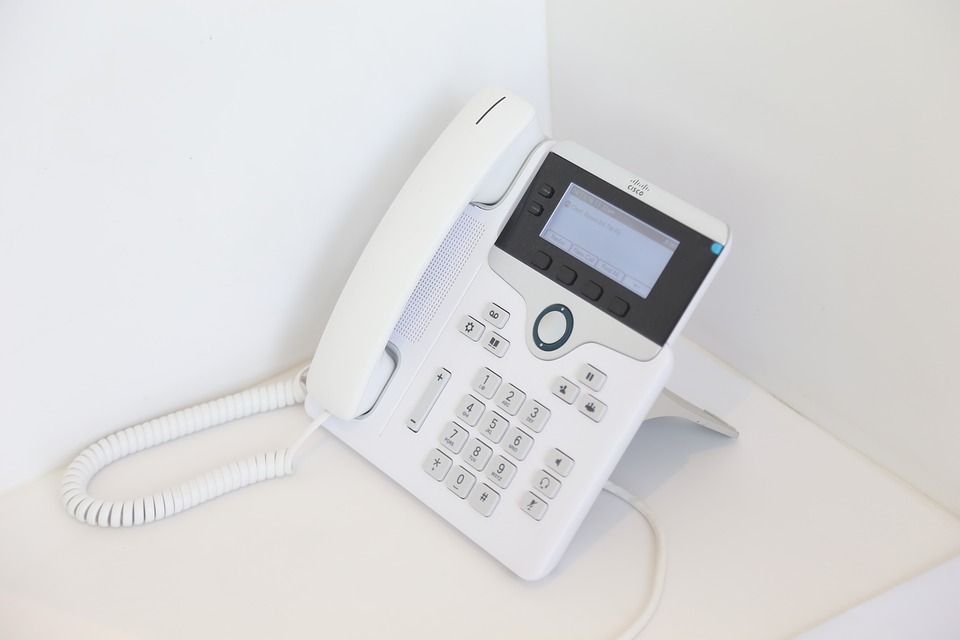Hello tellows friends,
For our blog this week, we thought it would be fun to do something different and give you a more general report about who fraudsters target and why we fall for scams.

Hello tellows friends,
Have you received fewer nuisance calls lately? Research by Ofcom would suggest so.

According to this Ofcom research, fewer nuisance calls are being made to UK landlines. So we can all breathe a sigh of relief, right? No, unfortunately not. Scam calls are still on the rise, and they now account for a much larger proportion of the nuisance calls received.
Hello tellows friends,
Today we ask you to consider: Is your computer really on the blink, or are you falling victim to a scammer?
It’s the oldest trick in the book. A stranger calls you from a number that you don’t recognise, claiming to be from a company that they actually have nothing to do with. A short while later you discover that money has been stolen from your bank account. But how do the scammers do it?

We first explored this type of scam last year and it is currently on the rise once again.
So it’s July, the start of summer holidays of 2019. We are all planning our vacation ahead, personally the tellows team really wants to visit Portugal, Greece, Bosnia and Herzegovina… We only hope the holiday could be longer! Anyway, tellows hopes that besides enjoying your holiday, you don’t fall victim to a vacation phone scam! Let’s check out the following Vacation phone scam together.
Updated 24 Feb 2020
It is almost March, how time flies! The tellows team has also been busy keeping the information about phone scams up to date. As expected, unfortunately, the number of spam calls, especially related to cost traps, is soaring because of more advanced technology nowadays and scammers having more means to escape from the authorities. Scammers have been taking advantage of taxpayers in last year. According to HMRC, over 100,000 reports of frauds were reported last year and the number is increasing. Last year, HMRC announced that it has been working with Ofcom, Mobile UK, Mobile Ecosystem Forum and Telecommunications UK Fraud Forum together to prevent bogus tax calls. The cooperation was successful and 1050 numbers have been deleted by HMRC, of which many numbers started with 0300. HMRC also stated that the number of phone scam reports has reduced by 25%, which is a very promising sign.

Dear readers,
Here we are in the season of Springtime tax scams, again scammers are trying to take advantages from us, especially targeting the young people and the senior as stated by HMRC. The numbers of youngsters and the elder possessing a smartphone is growing through these years. According to Ofcom Communications Market Report 2018, over half of the population who aged over 55, and 95% of young people (from 16 to 24) own a smartphone in the same period. This means that fraudsters have higher chances to scam people successfully through bogus text messages or phone calls.
Phone scammers are directing at youngsters and the vulnerables since most of them are less familiar with the tax system. HMRC stated that close to 2,500 reports of tax scams were reported per day last Spring, with roughly 250,000 reports received in total during the whole season.
Scammers are most likely approaching potential victims with refund scams in the tax period by email or texts pretending to be HMRC. They will offer a tax refund or payment for around 100 pounds in exchange for personal information such as bank account details. Be prepared for phishing websites. HMRC already made 6000 requests to shut down these cloned websites last tax season. Moreover, Fraudsters mostly asked for immediate action, therefore beware of phrases like ‘you only have 2 days to reply’ or ‘urgent action required’ in text messages or e-mail.
According to Head of Action Fraud, Pauline Smith:
“These criminals will contact victims in many ways including spoofed calls, voicemails and text messages. People should spot the signs of fraud and be wary of emails with attachments which might contain viruses designed to obtain personal or financial information.”
Take Five, the national campaign that advises on protection against financial fraud, Katy Worobec:
“The offer of a tax rebate might sound tempting, but don’t let the criminals hoodwink you into giving away your details or your cash. If you’re worried that you might have given away any of your information, then contact your bank straight away.”
Continue reading
Dear tellows readers,
This week we would like to share news from Europol (The European Union Agency for Law Enforcement Cooperation) and Trend Micro Research, together they released the Cyber-Telecom Crime Report 2019. The report explains our excessive dependence on telecommunications technology nowadays and how scammers take benefits from it by carrying out illegal activities. The cost of telecommunications fraud reached €29 billion according to Europol, as advanced technology dramatically increases fraudsters’ capabilities. tellows has already shared figures of the Missed call (the Wangiri fraud) and Vishing calls frauds before. This time we will have a look at International Revenue Share Fraud (IRSF)! These frauds mentioned above are all infamous telecommunications frauds included in the Cyber-Telecom Crime Report 2019.
Continue reading
Dear readers,
This time tellows would like to share some insights about the impact of the Brexit on phone scams and unwanted calls. As we are all concerned, the Brexit is not only a frustrating process, but besides its own complexity and influences, there is also a very annoying side effect – the Brexit scams. Phone frauds are not strange to us, there are many fraudsters in the UK and we often read news about phone scams. However, Brexit is making it worse by providing these scammers more ways to deceive people. Let’s take a look at the latest four Brexit phone scams.

Photo by Priscilla Du Preez and Kevin Grieve on Unsplash
Getting to know the Brexit scams
HMRC Brexit scams
Do you own a business and trade with the EU? If yes, then lets assume you have been told by the government that you have to register for a ‘UK trader number’. Scammers will try to reach you through email, text message or over the phone, and ask for your personal details such as bank account details, internet banking password or offering you a tax refund in exchange for personal or financial details.
Continue reading
If you receive an incoming call from a foreign number, you should be very careful! Fraudsters from abroad use these calls to deceive their victims and steal their money. And although this type of scam isn´t completely new, thousands of consumers fall victim to them every year. Even in 2019, the business with Ping-Calls (referred to missed call scams) flourishes in various countries such as Australia, Germany, Japan and more. Lately we registered an increasing number of reports regarding the “Missed Call”-scam in the United Kingdom on our site tellows.co.uk. However, what is this “Missed Call”-scam and how can you protect yourself against it? This article will answer these questions. Let´s take a look!